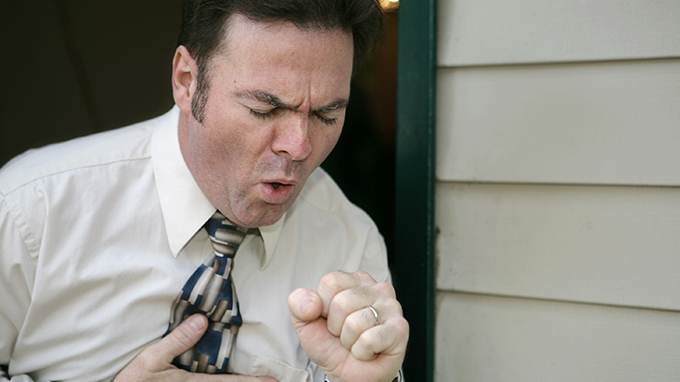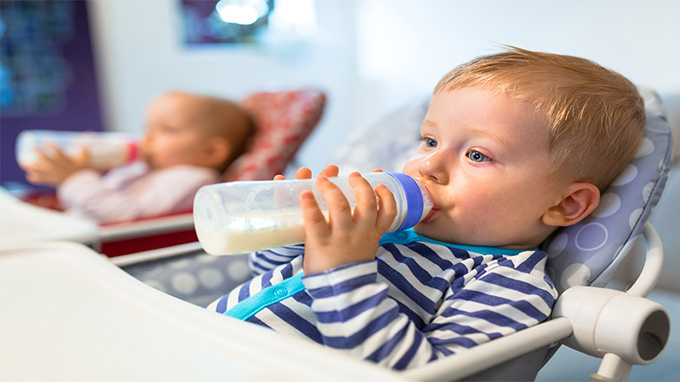See the number of colds to understand immunity
Children''s immunity is still improving, and they are more likely to get sick. Therefore, what most parents care about is what they eat to improve the child''s immunity, so that the child is less sick or not sick. Experts pointed out that children with low immune function need to go to the hospital for corresponding examination, and then symptomatic treatment is the key.

but the immune system is not born Perfection is gradually established. Whenever an infectious bacterium invades the body, the immune system stores the information to prevent the next infection, and can launch a more powerful attack on the bacterium.
Therefore, the immune system possessed by infants and young children who do not have or rarely suffer from infectious diseases, compared with adults who have experienced multiple infections and have increased their ability to resist infections in the process of fighting the germs The human immune system is much weaker. Therefore, proper sickness is not a bad thing. Don''t worry about the child''s immune function if he gets sick once or twice.
So how to judge whether the child''s immune system is improving or defective? Liu Haiyan pointed out that parents can pay attention to observe the number of children''s colds in a year to see if the child''s immune system is defective. Children from 0 to 2 years old can catch up to 7 colds a year, from 3 to 5 years old up to 6 times, and from 6 to 13 years old 5 times (note: two colds can be counted as two colds if they differ by more than one week). If you exceed the above criteria, or if the number of bronchitis or pneumonia in each age group exceeds 3, 2, and 1 respectively, you can diagnose the child as a repeated respiratory infection, then you must carefully check the cause of the disease. If it is congenital immunodeficiency disease, it is because these children are congenitally lacking some antibodies or synthetase.
If the child has a cold repeatedly, it is best to self-evaluate first, correct some wrong feeding methods and concepts, and try to eliminate some causes. To check the cause, you must go to a regular hospital. Clinically, doctors generally recommend checking blood routines to see if there is anemia and malnutrition, checking trace elements to see if there is a lack of calcium, iron, zinc; if necessary, take a chest radiograph or do a heart B ultrasound, to see if there is any deformity.
Children who often develop eczema as a child have a family history of asthma or allergies in their family. Be careful that the child is also allergic and rule out the possibility of asthma. If necessary, check the child''s cellular immunity and humoral immunity, and use symptomatic medicine.
Related Articles

- Children's bronchial asthma diagnosis and prevention guide
- Bronchial asthma (hereinafter referred to as asthma) is the most common chronic disease in childhood. The prevalence of childhood asthma in China has increased significantly in the past ten
- 2020-08-02

- Newborn pneumonia, what should parents know
- One day, when I went to the outpatient clinic, a young couple came to the clinic with a child who was just a few days old. They said they had just come from another hospital and they had d
- 2020-08-02

- Baby's cold medicine is wrong
- When a baby catches a cold, there will be some symptoms that make her mother have a headache, such as a runny nose, a cough, a fever, and so on. Faced with these situations, many mothers wi
- 2020-08-01

- For children with asthma, choose Chinese medicine or Western medicine
- The newly admitted young patient, 5 years old, girl, has a bad spirit and is coughing constantly on his father''s shoulder. As soon as the stethoscope touched the back of the child,
- 2020-08-01

- Keep children away from coughing
- (1) Acute cough and chronic cough From the perspective of diagnosis, we artificially divide cough into three categories: acute cough, subacu
- 2020-08-01

- Children's common diseases in summer
- Recently, from the outpatients in our hospital, the most common are upper respiratory tract infections (commonly known as colds), then chickenpox, hand, foot and mouth, mumps, scarlet fever
- 2020-08-01
